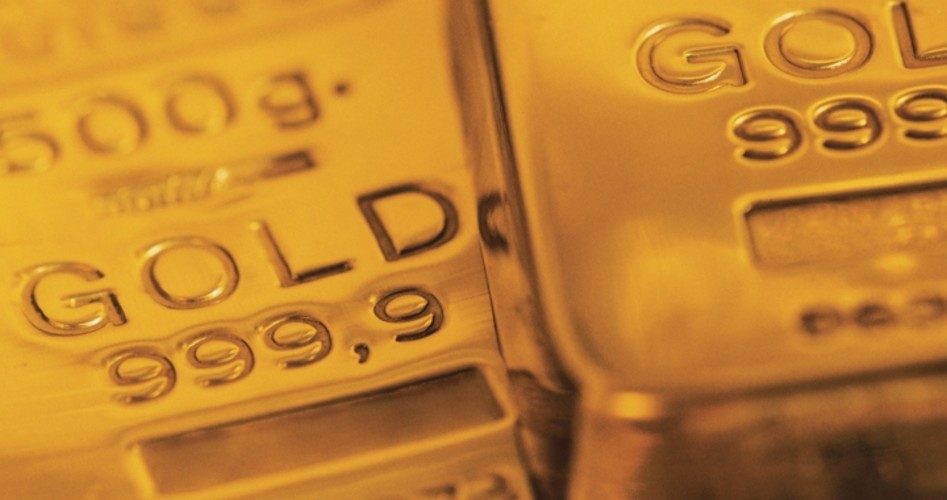
The Texas Comptroller’s Office has begun to receive bids from private contractors interested in building the country’s first state gold storage facility, the Texas Bullion Depository (TBD). When Texas Governor Greg Abbott signed into law the bill providing for it last July, he said it was all about saving fees being paid to store the state’s gold in New York banks:
Today [July 15, 2015] I signed HB 483 to provide a secure facility for the State of Texas, state agencies and Texas citizens to store gold bullion and other precious metals.
With the passage of this bill, the Texas Bullion Depository will become the first state-level facility of its kind in the nation, increasing the security and stability of our gold reserves and keeping taxpayer funds from leaving Texas to pay for fees to store gold in facilities outside our state.
State Senator Lois Kohlkorst, who sponsored the original bill, told a local radio station that it was all about saving those storage fees: “We have a number of state agencies which have invested in gold and we have to pay for those storage fees. We would like to bring that gold back to Texas.”
Once the facility is completed by the end of the year, the state will demand repatriation of nearly $1 billion in gold and other precious metals presently stored in New York City.
What got the Tenth Amendment Center excited was the inclusion of language in the bill that Texas citizens can also use the facility to store their own private holdings if they care to. The bill’s language also included setting up a facility, outside of the Federal Reserve System, that would allow those private citizens to write checks on their precious metals balances. Finally, the language precluded the TBD from loaning any of those reserves out to others. In other words, it eliminated any chance or opportunity for the facility to engage in fractional-reserve banking.
Tenth Amendment Center’s Michael Boldin called the law “an important first step towards gold and silver as commonly-used legal tender in the state. By making gold and silver available for regular daily transactions by the general public, the new law has potential wide-reaching effect.”
In addition, Boldin added that the TBD “would undermine the monopoly of the Federal Reserve system by introducing competition into the monetary system.”
Boldin’s enthusiasm was bolstered by William H. Greene, a professor economics at New York University’s Stern School of Business, who wrote:
Over time, as residents of the state use both Federal Reserve Notes and silver and gold coins, the fact that the coins hold their value more than Federal Reserve Notes do will lead to a “reverse Gresham’s Law” effect, where good money (gold and silver coins) will drive out bad money (Federal Reserve Notes).
As this happens, a cascade of events can begin to occur, including … an influx of banking business from outside the state … and an eventual outcry against the use of Federal Reserve Notes for any transactions.
Although Professor Greene refers to gold and silver coins, his reasoning is valid for currency that is backed 100 percent by gold and silver bullion. And this is most encouraging to Boldin, who said, “Once things get to that point, Federal Reserve notes would become largely unwanted and irrelevant for ordinary people.” This would in effect be “nullifying the Fed on a state … level.”
Texas is not the only state that recognizes that gold and silver are legal tender on the state level, as guaranteed by the U.S. Constitution (see its Contract Clause: Article I, Section 10, Clause 1). Oklahoma, Utah, and Louisiana have formally declared that that clause is also operative in their states.
Following Texas’ example, Tennessee passed a resolution in April setting the stage for a bullion storage facility there as well. Passage of a bill providing for the construction of a bullion depository and banking facility is likely, since the resolution itself was passed unanimously by both houses of the Volunteer State.
Little sparks set big fires or, as Samuel Adams expressed it, “It does not take a majority to prevail … but rather an irate, tireless minority, keen on setting brushfires in the minds of men.”
May this Texas spark set a conflagration that ultimately burns down the entire fractional-reserve banking system along with its chief enabler, the Federal Reserve System. Its “Federal Reserve Notes” are neither federal nor are they backed by any reserves. It is hoped that the Texas experiment will prove the fact, expose the lie, and ultimately end the fraud.
A graduate of an Ivy League school and a former investment advisor, Bob is a regular contributor to The New American magazine and blogs frequently at LightFromTheRight.com, primarily on economics and politics. He can be reached at [email protected].
Related articles:
Texas Launches Gold-backed Bank, Challenging Federal Reserve




